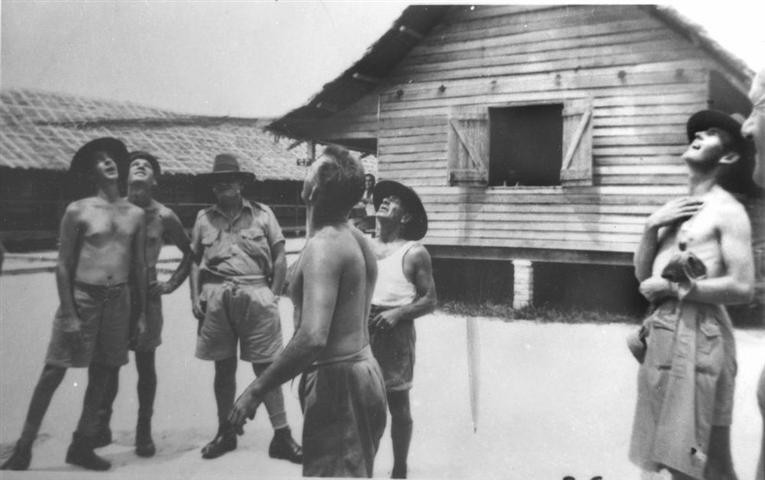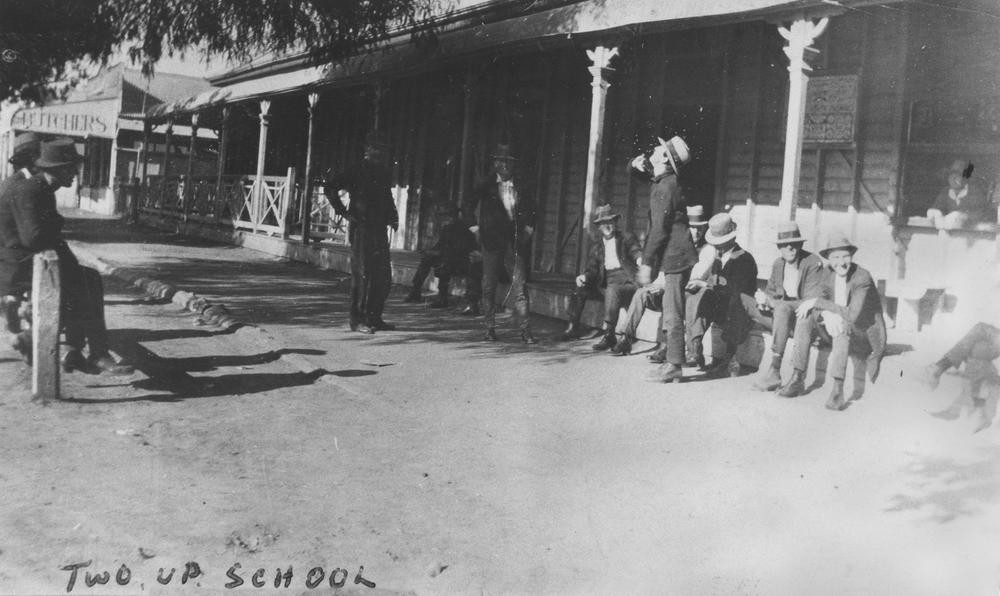Two-up legalized in Queensland
By Simon Miller, Library Technician, State Library of Queensland | 16 February 2012
This week the Queensland government announced that the traditional Anzac Day game of two-up can now be legally played in RSL clubs. RSL clubs can apply for permission to hold two-up games on other commemoration days such as Vietnam Veterans’ Day.
‘‘Two-up has been a long Australian tradition since colonial times,’’ Mr Lucas said. ‘‘It was particularly popular with Australian soldiers during the First and Second World Wars and has become an Anzac Day tradition. While technically illegal, police have traditionally turned a blind eye in recognition of the dedication current and ex-servicemen and women have shown to Australia.’’

Two-up likely evolved from an earlier game called “pitch and toss” or “chuck-farthing”. This game was popular in England and Ireland at the time of the first settlements in New South Wales and was played by convicts on the voyage out and it is probable that the game was adapted to increase the possible winnings to players. Whatever the exact origins of the game it was being widely played in the colony in the early 1800s.
A history of two-up in Australia can be found in an article by Jan McMillan in ‘Gamblers’ paradise’ published by the Royal Historical Society of Queensland.
The simplicity of the game, requiring only two coins and a patch of reasonably level ground, made it appealing, and its portability made it easy to avoid attempts from the authorities to stamp it out. While gambling at racetracks and gentlemen’s clubs by the wealthier citizens went largely unchallenged, working class and ethnic forms of gambling such as two-up and Chinese games such as fan-tan were outlawed.

During and after the First World War two-up became entangled in the digger legend that began to shape ideas of an Australian national character. The diggers’ legendary enthusiasm for two-up was used for promoting a shared ideal about the Australian character that involved mateship, fair play and resourcefulness in the face of adversity. The association between Australian diggers and two-up was institutionalized in ritualistic games of two-up held after the memorial service every Anzac Day.
During the 1960s and 70s increased access to legal gambling, with the establishment of off-course TAB betting, Lotto and Pools, the popularity of two-up began to decrease. Even in the armed services two-up was overtaken in popularity by card games among servicemen serving in Vietnam. Two-up was legalized for the first time in 1973 when the game was incorporated in Australia’s first casino in Tasmania and can now legally be played in casinos in every state. The game has since been legalized to a limited extent in particular places, such as Kalgoorlie in Western Australia and Broken Hill in New South Wales, and at the Flemington races on Anzac Day in Victoria.
Jan McMillan reflects that the appropriation of two-up by the commercial casinos may ultimately threaten the games survival.
“Stripped of its social and cultural significance, two-up is no longer an important representation of an Australian national identity. It is in danger of becoming merely an historical curiosity with limited entertainment and commercial value.”
Simon Miller - Library Technician, State Library of Queensland
Comments
Your email address will not be published.
We welcome relevant, respectful comments.